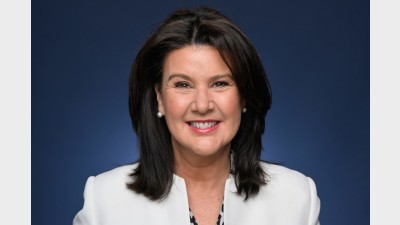How should funds calculate advice fees?


With the government moving to clarify the way that superannuation funds can charge members for advice, the question now is how the funds should calculate the fees.
Following Financial Services Minister Stephen Jones announcing the introduction of a new class of advisers – currently known as “qualified advisers” – in December last year, the attention around super funds providing advice focused squarely in that direction.
However, it is the first draft legislation coming out of the Quality of Advice Review (QAR) that aims to provide clear guidelines for the charging of advice fees from a member’s super.
Specifically, the draft legislation addresses recommendation 7 of the QAR – clarifying the legal basis for superannuation trustees reimbursing a member’s financial advice fees from their superannuation account, and associated tax consequence.
According to Paul Feeney, founder and chief executive at Otivo, confusion about super has resulted in many Australians ignoring it until they are about to retire.
“That’s why the government has been urging super funds to take a more active role in educating their members about the importance of advice,” Feeney said.
“The government believes super funds have the opportunity to become the gateway for personalised financial advice, ensuring Australians access the benefits of advice earlier to maximise their retirement savings.”
He argued that charging a member’s fund to pay for personal advice fees would provide benefits for the entire system.
“Super funds can allow members to cover the cost of advice using either their individual super fund balance or via the super fund fees. And the benefits are plenty,” Feeney said.
“For members, footing the advice bill through their individual super fund account eases the personal financial strain of advice fees and enables super funds to allocate collective fees to other services – rather than all members subsidising advice fees for the few who take up the advice service.”
Ben Neilson, financial adviser at Complete Wealth, agreed that improving access to advice through a “supportive system” is a positive direction.
“A large barrier to accessing any professional service (think medical, legal, tax and education) surround the costs and as it stands, most have supportive systems to assist with the facilitation of access,” Neilson said.
“Medical has private health and Medicare, legal has legal aid or the dreaded ‘no win, no fee’, tax has deductibility or the option to deduct costs from any potential return, and education has government-assisted HECS help loans – why should Australia’s youngest profession be any different?”
Feeney cautioned, however, that there may need to be limits in place to ensure advice fees aren’t eating into members’ balances.
“Setting a cap on advice fees, as a percentage of a member’s balance, in addition to a dollar cap, ensures fair and reasonable access to advice without disproportionately impacting account balances,” he said.
“There needs to be a limit to what super funds charge. According to ATO data from June 2023, the median balance for people aged 60–64 is only $183,500 – well under what most experts say they should have.
“Considering the average advice costs about $3,256, this fee represents about 2 per cent of that median balance, so an argument for capping the advice fees as a percentage of their balance is an interesting solution.”
Neilson added that there is also a benefit to charging the fee from the area with greater “organic regenerative capabilities”.
“The theory of fees deducted from a super fund allows consumers, particularly financially challenged consumers, affordable access to essential services often during their time of need,” he said.
“Providing this option isn’t taken advantage of (which admittedly, most products are doing a fantastic job of governing), most products have defined – and if not, they should be encouraged – processes, amounts and instances that can be directed towards financial advice.
“Given the position of superannuation, the tax benefits and the associated longevity, it makes statistical sense to apply cost to the area that offers the most organic regenerative capabilities.
“Think about how long it would take the average consumer to replace $3,000 and what opportunities they might miss out on versus how long it may take their superannuation fund to replace costs when affiliated with financial advice (given that most of us recommend some form(s) of additional and ongoing contributions to super to maximise tax benefits).”
The collaboration between super funds and their members, Feeney added, is a win-win scenario.
“As super funds embrace a more active role in advising and communicating, Australians gain the knowledge and confidence needed to secure their financial future,” he said.
Recommended for you
While the Financial Advice Association Australia said it supports a performance testing regime “in principle”, it holds reservations about expanding this scope to retirement products.
In a Senate submission, the Financial Services Council said super funds should be able to nudge members on engaging with their super and has cautioned against default placements.
The Joint Associations Working Group, which counts FSC in its ranks, has issued an urgent warning to the government.
Senator Jane Hume will join the speaker lineup at the inaugural Australian Wealth Management Summit.












Add new comment